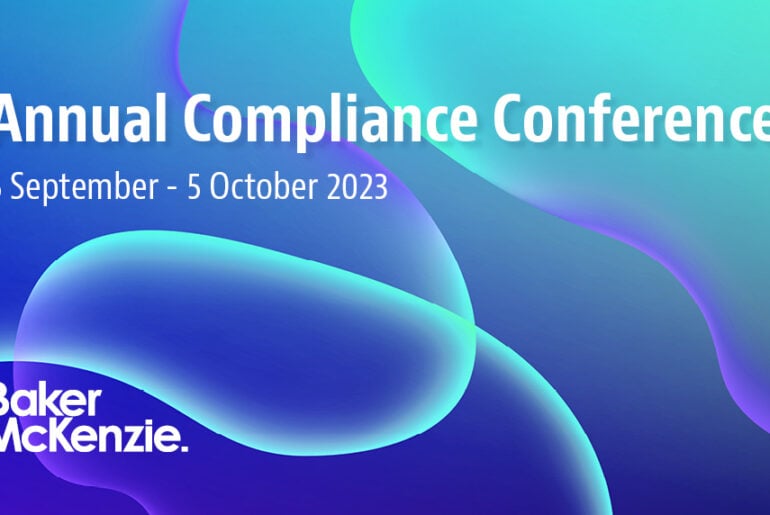Why it is important for companies to actively prepare the implementation of the German Supply Chain Due Diligence Act.
Global supply chains are increasingly under pressure: Not only did recent geopolitical events, the Covid pandemic and natural disasters disrupt supply chains globally. There are also more and more legislative requirements for supply chain management. We can see a trend in the legislative approach shifting from voluntary measures and self-commitments to mandatory regulations. After the introduction of the UK Modern Slavery Act, the French Duty of Vigilance Law, Germany also followed by adopting the Act on Corporate Due Diligence Obligations in Supply Chains (Lieferkettensorgfaltspflichtengesetz – “LkSG“). The LkSG lays down extensive obligations for companies with regard to their own business area, but also their direct and indirect suppliers. Many of the necessary measures require preparation. Therefore, companies should finalize their preparation in the coming weeks as the LkSG enters into force in 2023.
Overview of the LkSG
The LkSG will enter into force from 1 January 2023. It applies to companies (regardless of their legal form) that have their head office, principal place of business, administrative headquarters or branch office in Germany. Its scope is initially limited to companies that employ at least 3,000 employees. However, the scope will be extended to companies that employ at least 1,000 employees from 1 January 2024. According to the business register of the Federal Statistical Office, nearly 3000 companies in Germany fulfill these criteria. The determination of the number of employees can be difficult, for example, in the case of affiliated group structures, as in certain cases employees will be attributed. Moreover, the LkSG also potentially has indirect implications for companies that do not fall within its scope as companies directly obliged by the LkSG are likely to pass on obligations to companies in their supply chain (so-called “trickle down effect”).
The LkSG entails due diligence obligations relating to human rights and environmental risks and violations. These include for instance:
- Prohibition of the worst forms of child labor
- Prohibition of employment of persons in forced labor, including trafficking in persons
- Prohibition of all forms of slavery and other forms of oppression
- Prohibition of non-compliance with labor protection obligations
- Prohibition of discrimination
- Prohibition of withholding an adequate wage
- Prohibition of the disregard of the right to form trade unions
- Prohibition of torture
- Prohibition on the production of mercury-added products, use of mercury and treatment of mercury waste
- Prohibition of production and use of chemicals under the Persistent Organic Pollutants Convention (POP or Stockholm-Convention)
- Prohibition of export and import of certain hazardous wastes
The LkSG obliges companies to observe human right and environmental due diligence obligations in their supply chain in an appropriate manner. The due diligence obligations include:
- The establishment of a risk management system
- The internal designation of responsibilities, e.g. appointing a human rights officer
- The performance of regular risk analyses
- The adoption and communication of human rights policies
- The establishment of preventive measures in its own business area and vis-à-vis direct suppliers
- Taking remedial action in the event of a violation of a protected legal position
- The establishment of a complaints procedure
- The implementation of due diligence measures with regard to risks at indirect suppliers
- Documentation and reporting to the authorities
Key element of the legal concept is the obligation for companies to implement measures not only in relation to their own business area, but also in relation to their direct suppliers and in certain cases, especially if there are indications of violations, even in relation to their indirect suppliers. In other words, the LkSG extends the scope of responsibility of companies from their own business area to that of their direct and indirect suppliers. At the same time, however, these are only duties of effort, which also means that not every violation of human rights or environment related right is also a violation of the duties of the LkSG. However, companies have to show that they have taken appropriate measures and done everything possible to prevent human rights infringements in their supply chain.
Why companies should act now
Violations can result in significant fines and exclusion from public procurement contracts. Moreover, even if violations of the LkSG do not give rise to civil liability, independent civil liability remains unaffected by the LkSG. In addition, reputational risks are just as significant. If infringements become public, they can cause immense damage to the company’s image and consequently lead to financial losses.
What companies need to do now
Implementing the requirements of the LkSG and their preparation presents challenges for many companies. A complex system of measures must be integrated into the company’s processes. First of all, it is important for companies to gain an overview of the status quo: their supply chains, their contracts with suppliers, the necessary changes and their compliance management system. We recommend taking a strategic approach and aligning the implementation of the LkSG with the overall corporate strategy. It is important to include the entire company in this process, starting with the purchasing department, continuing with the compliance department, and up to management, setting the tone from the top. The centerpiece is an effective compliance management system. The LkSG also requires regular training of staff and control measures. In addition, it will be necessary to amend existing contracts.
Key Takeaways
When the legislator adopted the LkSG, the government assumed that more than 2,000 companies do not yet meet the requirements. This indicates that there is still a need for action at many companies. The competent authority, i.e. the Federal Office of Economic Affairs and Export Control Control (Bundesamt für Wirtschaft und Ausfuhrkontrolle – BAFA) itself is still in the process of setting up a new department that will be responsible for monitoring and enforcing the LkSG. Handouts are gradually being published, but so far there is little guidance from the government. Also, naturally, there is no practice by the administrative authority and court yet.
At the same time, there are indications that the obligations of companies with regard to their supply chain will be extended in the future. The EU Draft Directive on Corporate Due Diligence, which is currently being negotiated in Brussels, will likely lead to an extension of the scope and range of duties of the LkSG in the next few years. Further legislation will also be enacted in certain sectors, as illustrated, for example, by the Draft Regulation on Deforestation-free Products.
All this understandably leads to uncertainty in many companies. As experts in the field of ESG and compliance with many years of experience, we gladly advise and assist you in the preparation and implementation.
“Get your supply chain management fit for the future with Baker McKenzie”




